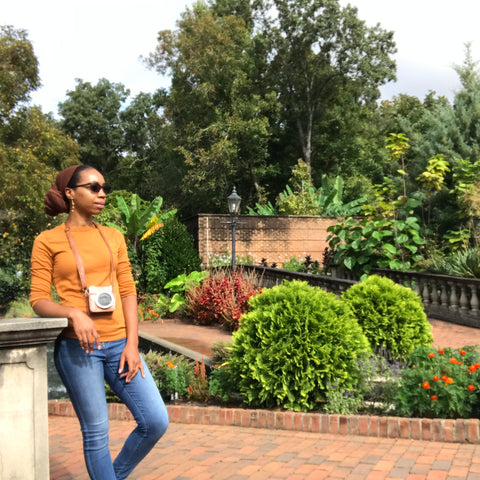
Have you ever heard of George Washington Carver? If not, that's ok. To put it simply, he was the most prominent Black agriculture scientist and inventor in the 20th century. He created new methods for farmers and croppers that are still used today.
I remember learning about Carver in elementary school during Black history month, and then poof, his name was never mentioned again. However, Carver's name recently reappeared in my memory over the weekend on my visit to the Riverbanks Botanical garden in South Carolina.
As I was strolling through the gardens learning about the many plants, I couldn't help but think of these three questions:
First, what contributions have African-Americans made in botany?
Second, who are the agriculture scientists after George Washington Carver?
Finally, has the perspective of gardening changed over the years?

Well, I did a little searching, and when I say little, I mean little. Farming, gardening, and herbal healing are extremely rooted in the Black community. So, this could have turned into a long research session. I limited my research time to an hour. The picture above and below are by, Vaughn Sills. She documented the sacredness of the garden in the Black community. Her website is worth a visit. Her pictures were the first to appear on my quest for answers.

Here's the answer to my first and second question.
"Marie Clark Taylor (1911-1990) was the first African-American woman to gain a PhD in botany, and the first woman of any race to gain a Ph.D. in science from Fordham University. She later became Head of the Botany Department at Howard University." Her academic achievement is beyond motivating and inspiring. More on Taylor here.

Has the perspective of gardening or herbal changed over the years?
Herbal healing is something I'm pretty familiar with. If you've checked out my self-care post, then you know that chlorophyll is a part of my nighttime regimen. I also take fenugreek and macaroot; they've been in life for years.
It seems as tho millennials and gen z are going back to agricultural traditions. They are creating more community gardens and passing them on to their children.
The 2017 National Garden Survey found that five of the six million Americans who took up gardening in 2016 were between the ages of 18 to 34. Learning that more young people are getting back to the land was a lovely surprise. Self-sufficiency and autonomy is always a good idea.

More on herbal healing,
In the 19h century, James Still (1812-1882) was a well-known herbalist in New Jersey. He created a "cough balm" from plants and herbs grown on his farm, and soon after his first patient used it successfully Still became known as the "Black Doctor of the Pines." More on his story here.

Here's some bonus material I came across during my quick search. Wormley Hughes (1781-1858) was the head gardener for Thomas Jefferson's properties. Although a slave, Hughes managed the land and made many executive choices regarding the progression of the garden. There are many archival documents referencing Hughes and Jefferson's trust in his agricultural skills here.
Have you heard of these historical figures?

"My body is here, but my soul is lost in the past."

Leave a comment